This is our review of the best sulfur water filter for 2022.
You probably already have some type of filtration system in your house, but if it’s not designed for sulfur, you might still get that wonderful “rotten egg” smell that means you have sulfur in your water.
If you’re wondering how to get rid of it and what the best sulfur water filter is, we’ve done the homework for you so you can address your problem more quickly.
After Evaluating numerous sulfur removal systems, we determined the best sulfur water filter to be the AquaOX RE system, a highly efficient whole house filter designed to remove sulfur in water. Springwell and Pentair Pelican are also good brands to consider.
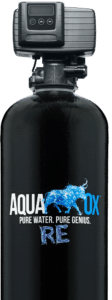
- 30 days return policy
- 10 year warranty
- Zero drop in water pressure
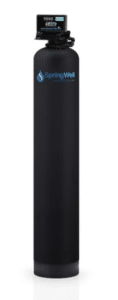
- 6 months satisfaction guarantee
- Lifetime warranty
- Free shipping
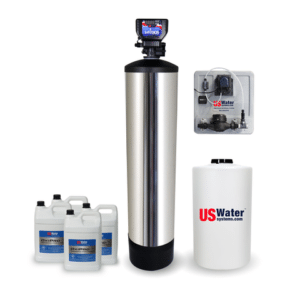
- Smartphone app available
- Lifetime warranty on tank, 5 year on electronics
- Free shipping
Best Sulfur Water Filter Reviews
We researched several different sulfur water filtration systems and narrowed the field down to the top three available today.
1. AquaOX Sulfur Water Filter

How It Works
The AquaOx RE Edition is an add-on to AquaOx’s primary home filtration system, which is a whole-house system that purifies the water throughout your entire home. In addition to filtering out hydrogen sulfide, which is the gaseous compound creating the rotten egg smell, it also eliminates other contaminants and sediments that cause your water problems.
Its VorTech technology helps the filtration bed remain fluid, which extends the filtration process. That, in turn, means the AquaOx has an extended contaminant removal process, which reduces overall water usage in the system.
The AquaOx uses several filtering media, including:
- KDF 85
- Garnet
- Centaur Catalytic Adsorptive Carbon
- Activated coconut shell carbon
- Filter AG
What AquaOx Offers
Regardless of whether you’re using city water or are on a well, AquaOx’s water filtration system can filter as many as 3.2 million gallons of water and can last up to 20 years before you need to replace it.
Many whole house water filter systems, especially those designed to filter out extreme levels of contaminants, bring your water pressure down. For many people, water pressure is already a problem, and nobody wants to make that worse. AquaOx doesn’t affect your water pressure at all.
Finally, your water gets three times the surface time of other filtration systems, giving you cleaner water, improved food and drink flavors, and even improved air.
- Water pressure of up to 15 gallons per minute
- 12-month money-back guarantee
- 10-year warranty
- Customizable filter
- Expensive
- RE Edition is a separate filter you add to the whole-house system
2. Springwell Sulfur Filter For Well Water

How It Works
Not every water filter works on every home’s water system. People who have private wells have different problems than those using municipal water systems.
Contaminants include hydrogen sulfide, yes, but also manganese, high levels of iron, and other compounds. You need a sulfur filter for well water to best address this problem.
SpringWell’s system uses a single tank that creates, maintains, and freshens an air pocket at the top. That air pocket oxidizes metallic contaminants and sulfur while the rest of the system adds dissolved oxygen to the water and flushes the pollutants away.
It goes through the following steps:
- Water goes through the air pocket at the top
- Sulfur, manganese, and iron are oxidized
- Greensand inside the system traps the oxidized materials
- Contaminants are backwashed and flushed down a drain
- The air pocket gets refreshed
- Clean water gets distributed through your house
What SpringWell Offers
SpringWell removes up to eight parts per million of sulfur, up to seven parts per million of iron, and up to one part per million of manganese.
It also comes with a Bluetooth feature that allows you to connect to and monitor the system from anywhere. You can control the valves and change their settings as well as see if something goes wrong, either while you’re at home or out.
If you aren’t sure whether you need SpringWell’s filtration system (or any filtration system), you can buy one of their well-water tests to check out what’s in your water.
Related Article: Best Well Water Filters
- Daily backwash replenishes the bottom filter
- Control valve is programmable and automatic
- Patented piston system keeps entire process in one single tank
- You can control it with an app
- Slow release of used air pocket to prevent explosive noise
- Not suitable for systems other than private wells
- Only designed to remove sulfur, iron, and manganese
3. Matrixx Infusion Sulfur Removal System

Our third pick is the Matrixx infusion system a high-powered filter that we recommend for extreme levels of sulfur and iron in water. If our top and second picks aren’t enough to get the job done, this certainly will.
The secret to eliminating the odor and taste of hydrogen sulfide (rotten egg smell) is by continually injecting hydrogen peroxide into the water stream to oxidize and remove foul odors and contaminants.
Contaminants it removes include:
- Iron
- Manganese
- Bacteria
- Hydrogen sulfide
We found that the Matrixx infusion filter uses a special Vortech filter that reduces the amount of water used as it weeds out and sends away the filtered debris from your water. The backwash allows a decrease in any sediment or cloudiness that may be present in your water.
There is only one moving part within the filter, so not as many things could go wrong and force you to have it repaired– if you do need repairs, the Matrixx Infusion comes with a full 7 year warranty.
With the constant injection of the right dose of hydrogen peroxide, it reacts naturally to neutralize these odors and contaminants in a natural way, leaving no harmful by-product in your drinking water. Only fresh, clear, odor-free water.
How the Matrixx Infusion Filters Your Water:
- The large surface area of the tank allows for less water pressure to raise the resin bed
- The Vortech plate eliminates needing gravel in water softeners
- When the bed lifts from water pressure, the system is activated with no need for moving parts
- The efficiency allows for 30-40% less water and salt in your system
What the Matrixx Infusion System Offers:
The Matrixx Infusion system is industrial-grade, meaning it will get the job done right. Depending on how many bathrooms or water taps you have in your home, you can purchase different levels of this filter with varying GPM (gallons per minute).
It operates on a 12-volt charge so you don’t risk an electrical shock. Per year the Infusion only uses about $2.00 worth of electricity. It even has a backup battery so you have clean water if the power goes out.
The Matrixx Infusion includes smart valve technology, connecting your system to your smartphone through Bluetooth. It gives you control of your system and lets you see how much water is being used. You can download the Waterlogix app and have all the settings right at your fingertips after pairing it with your system.
The Matrixx Infusion filtering system from US Water Systems is an efficient and high-tech way to solve your smelly water problems. It comes from a company that has spent decades perfecting a hydrogen peroxide filtration system.
This is the latest update in their line of successful filtration systems. It gives you control right from your smartphone and a transparent understanding of the water you’re using every day.
- Minimal moving parts
- Low cost in electricity due to low voltage charge
- Uses 30-40% less salt and water
- Integrates with your smartphone for customized settings at your fingertips
- May require professional installation
- Can be quite pricey
4. Pentair Pelican Sulfur Filtration System
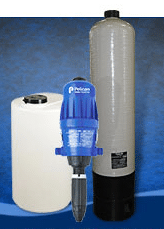
How It Works
The Pelican water filtration system removes several contaminants, including chlorine and chloramine, herbicides, pharmaceuticals, solvents, sulfur, and sediment down to just five microns, among other things.
You get two models to choose from, depending on the size of your home. To filter out sediment, you get a pre-filter with mounting hardware to keep sediment from getting into the system. Furthermore, its bacteria static media slows down, and even prevents, bacterial growth.
The Pelican water filtration system has a four-stage filtration system built in such a way that you don’t need a backwashing head to clear the filtration media, which includes:
- Five-micron pre-filter
- Catalytic granular activated carbon
- KDF 55
The first stage removes the sediment, while stages two and three use the activated carbon to remove everything from chlorine to hazardous waste and industrial solvents to pesticides and herbicides. All of this is important when you’re on a well.
What The Pentair Pelican System Offers
In addition to removing multiple contaminants and pollutants, you also have a system that eliminates potentially dangerous pathogens from your water.
It runs in such a way that you don’t need to use any electricity, so it won’t run up your electric bill or fail if the power goes out.
You also get a polished, stainless-steel look, so on the off-chance that your system is visible, it has a sleek, modern look.
- Up-flow design ensures no water gets wasted
- Removes corrosive compounds from your water in addition to other contaminants
- Inhibits bacterial growth
- Low-maintenance design
- NSF-certified
- Requires you to change the filter every six to nine months
- No indicator telling you when to change sediment filter
First-Time Buyer’s Guide – How to Buy Right
Before you buy a sulfur water filter system, you should know how to choose the right one. Not only are these systems expensive, but they’re an investment in your home and your health.
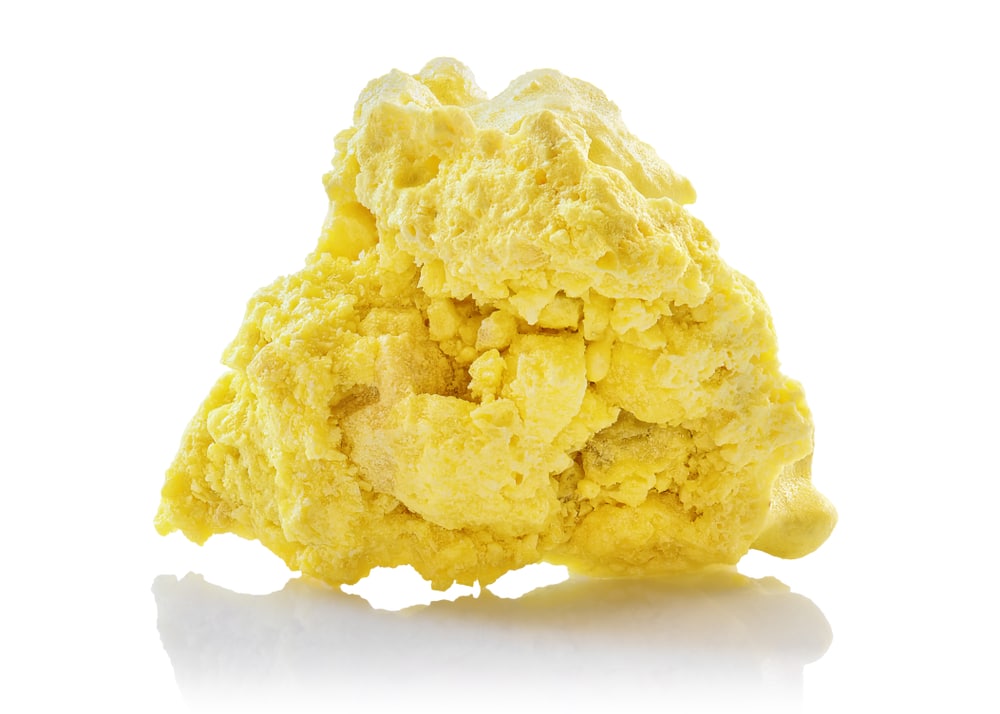
How Sulfur Gets into Your Water
Sulfur, or, more accurately, hydrogen sulfide, gets into your water in one of two ways. When plant matter decays underground, it releases many gases, including hydrogen sulfide. If that’s happening near the water table, then the gas may be dissolving into the groundwater.
It may also get into your water if you’re on a well that was drilled near oil fields and coal deposits or in places with high sandstone or shale components. Bacteria that feed on organic matter and live in low-oxygen environments tend to produce hydrogen sulfide.
Is Hydrogen Sulfide Harmful?
It can harm your appliances and your plumbing even if it’s not specifically dangerous to you. But it smells bad, can make your water taste bad, and can negatively affect the taste of your food, too.
Generally, it’s not dangerous to people. However, high concentrations of hydrogen sulfide can cause minor health problems, such as headaches, nausea, eye irritation, and even a sore throat and cough that never seem to resolve. You might also experience digestive issues like vomiting and diarrhea, although these are more common with extreme levels.
At the very least, sulfur is a nuisance you’ll want to get rid of, probably sooner than later once you realize you have it.
Filtration Options
You’ll discover hundreds of filtration products on the market from which to choose, which is why we put this list and guide together.
There are two categories of filtration: Sediment and large-particle filtration, and hazardous compounds and pathogenic filtration.
Filters designed for sediment and large particles help prevent scale buildup on your faucets and showerheads, in your washing machine, and in other places, too. It also keeps you from having a lot of plain old dirt in your water.
Most water filtration systems have some overlap in these two categories, but there aren’t many that do both. Depending on what you find, you may need two different filtration systems, especially if you live in a rural area.
Testing Your Water
When it comes to contaminants, you should know what you have and whether you need to filter it out.
You can generally tell how bad your sulfur problem is just by how strong the smell is. If it’s faint, like you can only smell it when your nose is near the water, then it’s not too bad. However, you might notice you have a mild but worsening odor, meaning the problem is getting worse.
However, if you can smell it halfway across your house after running the dishwasher or taking a shower, you have a considerably worse problem than you might have first thought.
If you’re on a municipal water system, step one is contacting your utility provider and asking for their Consumer Confidence Report. The federal government requires all public water utilities to provide this report, and it tells you what they treat your water for and how they do so.
However, that report doesn’t have any information on what happens when your water’s in the pipes. Old, rusty pipes, lead pipes, and other problems can leach contaminants into your water and give you very different water from what comes out of your treatment plant.
You can contact the EPA for a list of labs that will test the water at your house, or you can use something called Tap Score from Simple Water. Tap Score will send you a water test kit to complete and send to a lab.
Results take time, but it’s worth it to know what kind of water filtration system you need.
Choosing Your Filter
You probably already have one that filters out dirt and most sediment. If you have a hard water problem, you might already have a water softener that reduces scale buildup, too.
Now you need to find one that addresses your specific needs. The easiest ways to filter and treat your water, particularly if you have sulfur problems, include the following:
- A chlorinator to inject either chlorine or hydrogen peroxide into your water
- An air-charge catalytic carbon filter
- An aeration system
- Ozone injection
- Multi-stage filtration systems
An ultraviolet system will help kill things like algae, viruses, and bacteria, but that’s only necessary if you have a problem with those kinds of pathogens.
Multi-stage filtration systems like the ones we’ve discussed are expensive, which is why getting your water tested is so important. UV systems and aeration systems are, too.
However, when people discover they have water problems a Brita or faucet filter won’t fix, they tend to install multi-stage filtration systems to take care of the problem once and for all.
FAQs: What Questions Are Other Buyers Asking?
We’ve identified some of the most common questions about sulfur water treatment systems and filters to help you understand more about what you need.
If it’s a water filter that’s specified for filtering sulfur, yes. But any old water filter won’t necessarily. Standard water filters remove sediment but not gases, and the sulfur in your water is actually hydrogen sulfide.
Whether it’s a Brita pitcher, a filter on your faucet, or just a regular filter you put on your home’s water main, it won’t filter out gases.
Keep in mind that sometimes, the “rotten egg” smell isn’t from hydrogen sulfide at all. Instead, it’s from raw sewage in your water. You might not be able to see it, but you can smell it, and you can mistake it for sulfur. That’s why it’s so important to know what’s in your water before deciding on a filter.
This is either because you’re not using a filter designed for sulfur filtration or because you’re not changing your filter as required.
Check the directions on your filter to be sure that it’s supposed to help with sulfur and that you’re changing it regularly.
If you have a whole-house system that’s supposed to filter out sulfur, among other things, and you’ve been performing whatever maintenance it requires, contact a licensed specialist to see about scheduling a service appointment.
One type of filter that can remove sulfur from your water is an oxidizing filter. When these filters oxidize the hydrogen sulfide producing the “rotten egg” smell, they convert it to solid sulfur, which then gets removed from your water system.
It’s similar to the way filters remove sediment.
These types of filtration systems use chlorine, potassium permanganate, or hydrogen peroxide to oxidize hydrogen sulfide and remove it from your water.
Likewise, aeration filters work on gaseous contaminants such as hydrogen sulfide and do so without adding new chemicals to your water. They simply inject air into your water, which allows gases like hydrogen sulfide to escape.
Generally, yes. Sulfur, or rather, hydrogen sulfide, isn’t especially dangerous to humans, even if you ingest it via your home’s water. In heavy amounts, you’ll run into some problems like headaches, skin and eye irritation, and possibly nausea.
If you have a particular sensitivity to it or chemicals in general, you might react to it as well. However, your water would have to have extreme concentrations of it to be dangerous to you. The biggest problem you’ll have with sulfur in your well water is the taste and smell.
It might indicate that you have other contaminants, too, so get your well water checked out if you’re having problems with the “rotten egg” smell.
Yes. Activated carbon filters eliminate multiple contaminants from your water, including the hydrogen sulfide creating the sulfur smell. The activated carbon surfaces absorb gasses in your water, leaving you without the sulfur smell (among other things).
However, activated carbon isn’t the only type of carbon filter that removes sulfur. Newer technology involving catalytic carbon filters combines carbon filter tech with oxidation. These filters absorb the hydrogen sulfide and then oxidize it, eliminating it from your water.
Catalytic carbon filters can remove much higher levels of hydrogen sulfide than activated carbon because of this.
Final Thoughts
Whether you’re on a well or a municipal water system, the smell of sulfur in your water is annoying at best. Standard filters don’t work because the sulfur in your water is actually a gas, not a solid. With a good filtration system designed to remove sulfur from your water, you can have great-tasting water without foul odors.

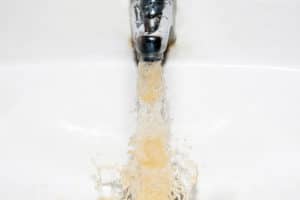
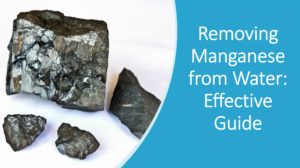

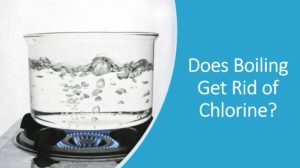
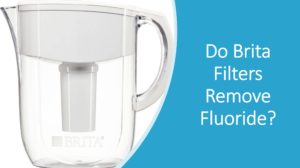
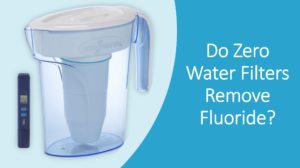

Thank you Jennifer for this great article. Very informative yet concise and to the point. Unfortunately, hard to find a good installer in our area who isn’t backed up. Take care, Mike
I just drilled a water well (1880 feet deep) at our ranch to be used for whole-household and limited livestock use. The well is an artesian well that produces 200 gpm with a closed-in pressure of 205 psi. I am building a 12′ X 13′ basement/bunker 20′ from the well to install a small hydro-electric turbine and provide a place for all the water filtration needs for a whole-house and “limited” livestock use. I will need about 500 gallons per day of water that will be free of contaminates. The following state-approved lab results on the water came back with the following information: pH = 7.2 s.u., TDS @ 180 C = 2780, Alkalinity – Total as CaCO3 = 200 mg/L, Bicarbonate as HCO3 = 240 mg/L, Carbonate as CO3 = Not Detected), Chloride = 38 mg/L, Sulfate = 1610 mg/L (with a Hydrogen Sulfide smell present), Fluoride = 2.8 mg/L, Hardness as CaCO3 = 1580 mg/L, Nitrogen (Nitrate+Nitrite as N), = Not Detected at the reporting limit, Calcium = 349 mg/L, Iron = .18 mg/L, Magnesium = 173 mg/L, Potassium = 16 mg./L, and Sodium = 114 mg/L. I would like help in designing a complete whole-house filtration system where the first item removed with be the sulfates (including the hydrogen sulfide gas). I would prefer that the system not require any electricity (if possible) and that as many filters as possible be cleaned by back washing/flushing. Please help me if you can. Thank you.
Thanks for the info, Chuck. Please follow up with our team if you need more recommendations after the information we sent to you already.